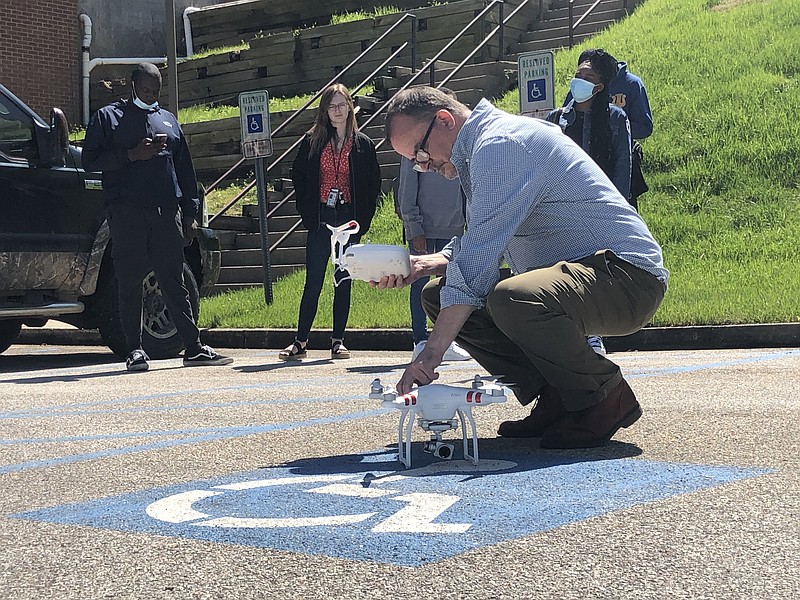A relatively new journalism program at Lincoln University has gotten off the ground and taken flight.
The Lincoln University drone journalism program, which began in 2018, teaches students how to use drone technology that can be used in journalism and other careers.
While studying trends in broadcast and print journalism, associate journalism professor Will Sites noticed many media entities use drone footage in stories and broadcasts.
"I'm always looking for new skills to teach," Sites said. "I saw this as a skill that could easily be incorporated into the Lincoln University's journalism program. I asked my boss if this would be OK to start doing, and he said, 'yes.' And from that, I was able to get training at the University of Wisconsin."
After receiving his certification, Sites was then able to bring the training to Lincoln and repurpose it for students to use in their own education. Part of that education includes training for the test for a drone pilot license.
"Anyone that's going to fly a drone has to have a commercial drone license from the Federal Aviation Administration," he said. "Our class is about an eight-week prep course to take the test, and I believe the fee for the FAA is $150, although we're always looking for grant money to cover that."
Lincoln University, Sites added, is the first historically Black college to teach drone journalism.
"Drones now are being used daily," he said. "They're also being used across many more industries. It could be used for advertising, it could be used for utility companies to fly power lines, it could be used for real estate or even for construction. We're seeing it across almost every field, not just in journalism."
Sites said one of his former students, Shawna Scott, now works for the Missouri Chamber Commerce.
Scott said the training she received through Sites was invaluable to her.
"Professor Sites was kind enough to let me sit in on his class for the Part 107 FAA test that drone pilots need to pass to receive a license to fly for commercial purposes," she said. "Since I was preparing for the test so I could fly a drone for my employer, they were kind enough to let me take the time out of the workday. The class resources were especially helpful. I could have never found all that study material on my own."
Scott said the course offered her hands-on experience in learning how to fly and taking photograph with drones from a bird's-eye view.
"Before the class, I had no clue how to read an airspace map, how high you're allowed to fly in certain zones or what wind speeds to avoid flying in," she said. "I highly recommend LU's drone training. There are so many shots you simply can't get without a drone. It is becoming a staple skill for media professionals. It's a great certification to be able to put on your resume."
LU junior Elise Eaker plans to use her knowledge of flying drones in her career as a future reporter, as well as her photography business.
"I actually plan to take the test at the end of May or the beginning of June," Eaker said. "I have recently started to book weddings, so I could offer video for that as well. I think for events and things like that, it could be really cool. I know there's definitely a market for that."
Sites said drone technology is an essential tool many students will need for their careers.
"It's another tool that they can put in their toolbox when they go to get a job," Sites said. "Today in journalism, if you're going to be working in video or photography, you almost need to have your drone license.
"It's a great skill and students love it, and the school has been very accommodating to us," he added.

